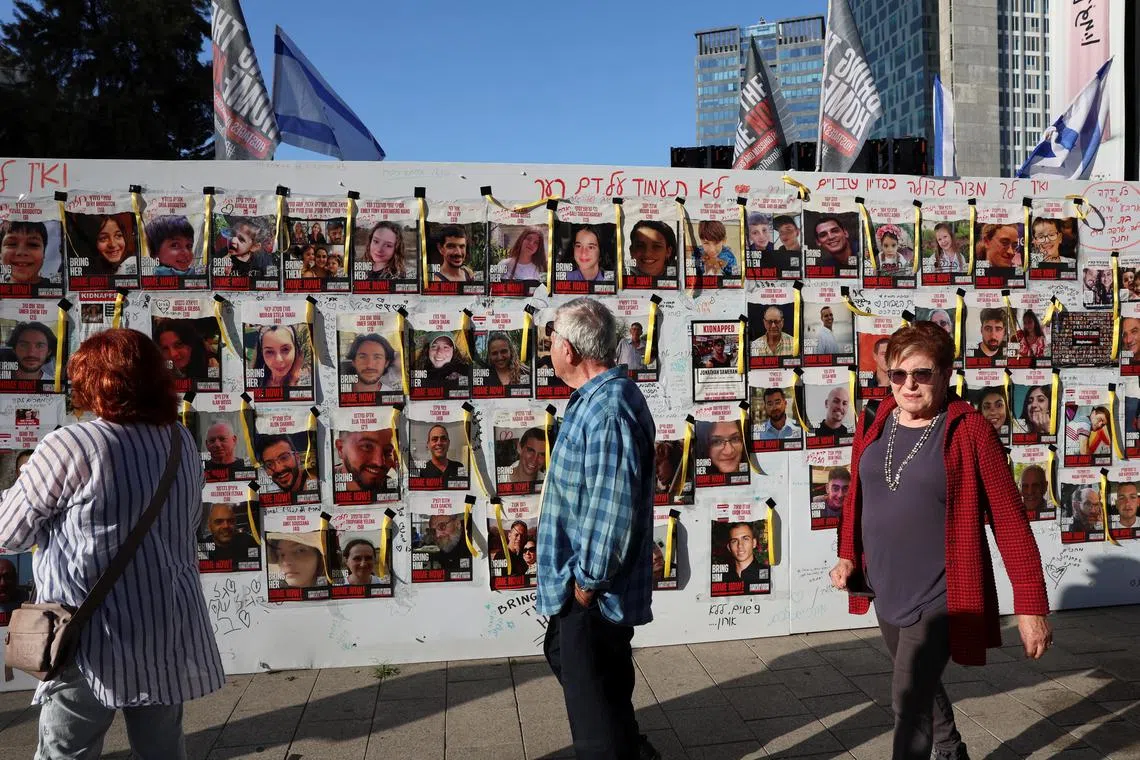Israel army says five Gaza hostages confirmed dead
Sign up now: Get ST's newsletters delivered to your inbox

A wall in Tel Aviv covered in posters of missing people, on Nov 30.
PHOTO: REUTERS
JERUSALEM – The Israeli army on Dec 1 confirmed the deaths of five hostages held in Gaza, saying their families had been informed, and the body of one of them returned to Israel.
“In recent days, the IDF (Israel Defence Forces) and Israel police notified the families of the hostages Eliyahu Margalit, Maya Goren, Ronen Engel and Arye Zalmanovitz about their deaths,” army spokesman Daniel Hagari said.
He also said troops had brought back the body of a fifth person whom he identified as Mr Ofir Tsarfati.
Separately, the army said Mr Tsarfati’s body had been “located in recent days” in Gaza by troops and the Shin Bet internal security service and taken to Israel for burial, with the family informed of his death on Nov 27.
Mr Tsarfati was kidnapped from a rave party near the Gaza Strip during the Hamas attacks on Oct 7, when militants stormed into southern Israe
Rear-Admiral Hagari said Gaza militants were still holding “136 hostages, among them 17 women and children”.
He also spoke about the Bibas family, saying a claim made earlier this week by Hamas’ armed wing about the mother Shiri and her two young sons – 10-month-old Kfir and Ariel, four – “has not been verified”.
The militants said the three had been killed in an Israeli bombing
“The Bibas family, the mother and the children, were supposed to return to Israel and Hamas chose not to do that,” Rear-Adm Hagari said, referring to the week-long hostage swop deal in which 80 Israeli hostages were freed, mostly women and children.
“The information that Hamas publishes has not been verified by us so we are not addressing this issue,” he said.
Since Oct 7, Israel has been waging a massive military campaign aimed at destroying Hamas and returning the hostages.
The territory’s Hamas-run government says the offensive has killed more than 15,000 people, two-thirds of them women and children. AFP


